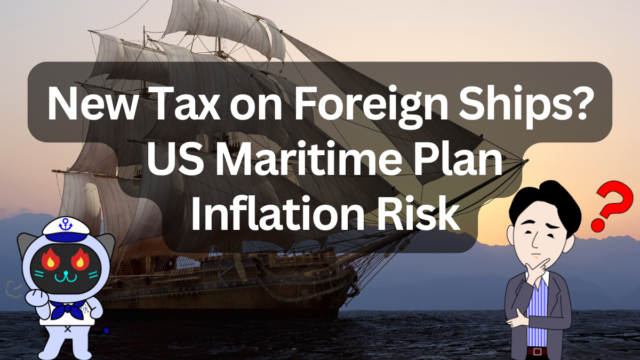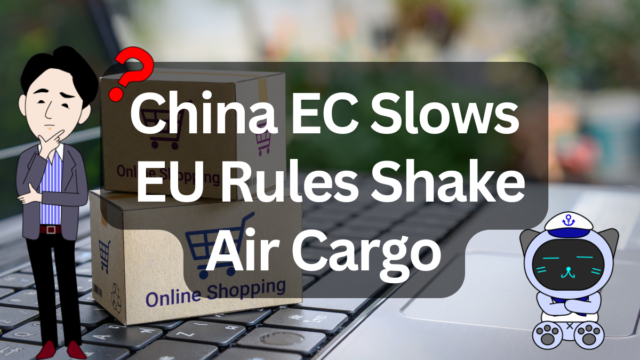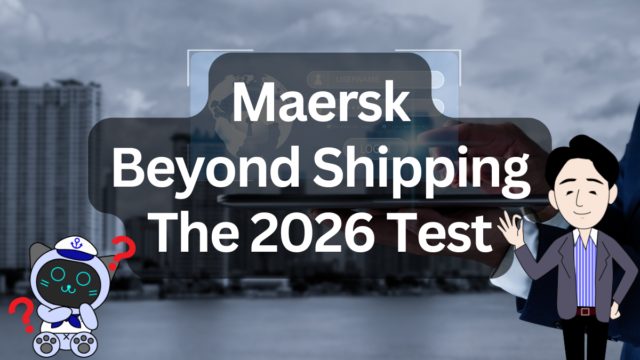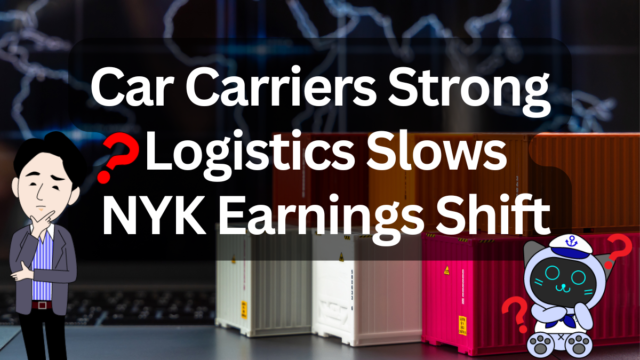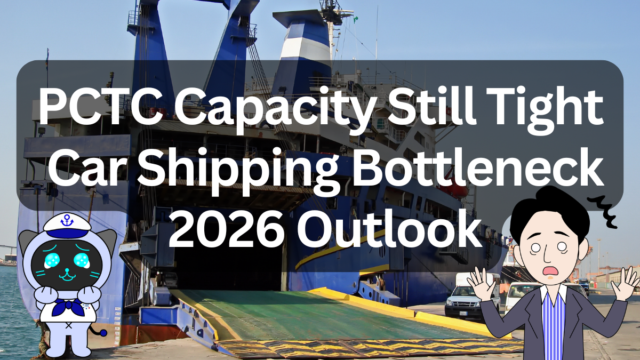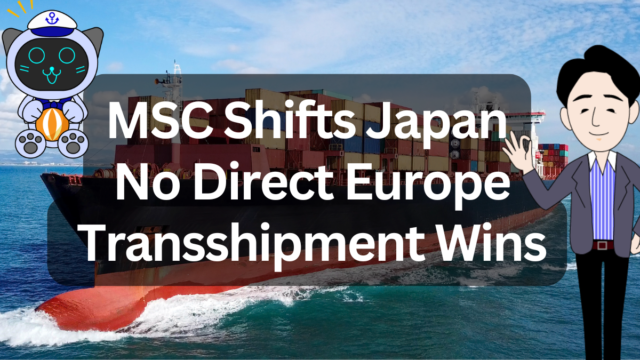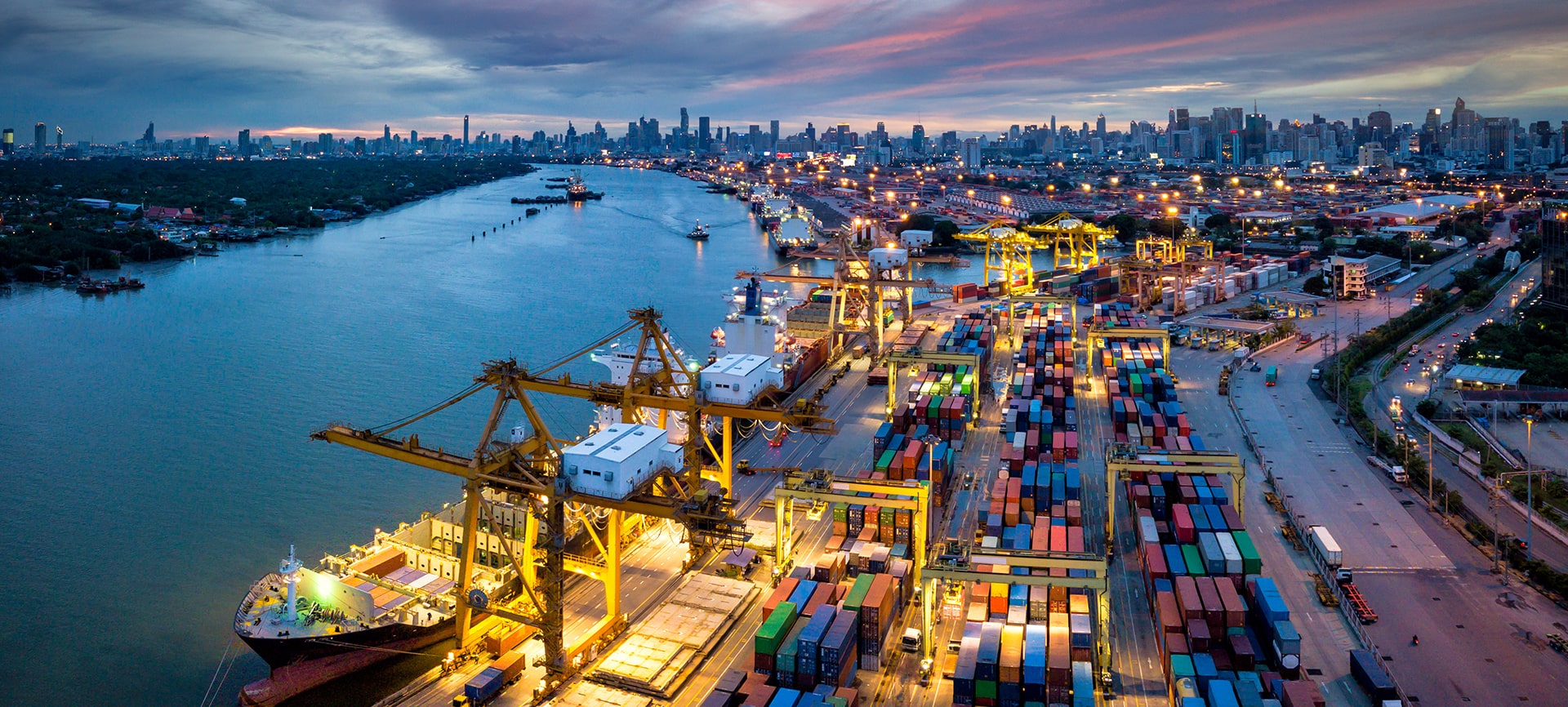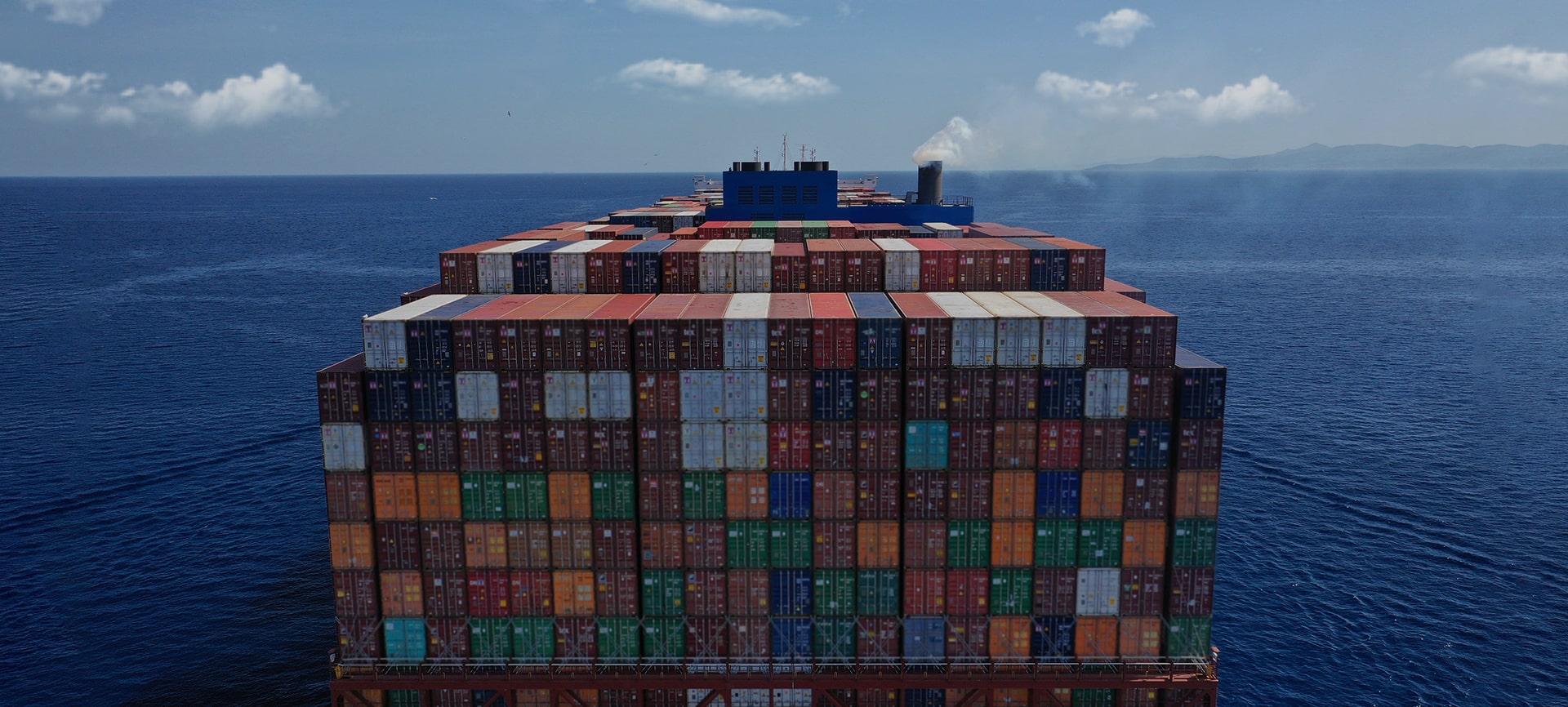Posted on: September 8, 2025 / Last updated: September 8, 2025
AI Disruption Shakes the Container Shipping Industry
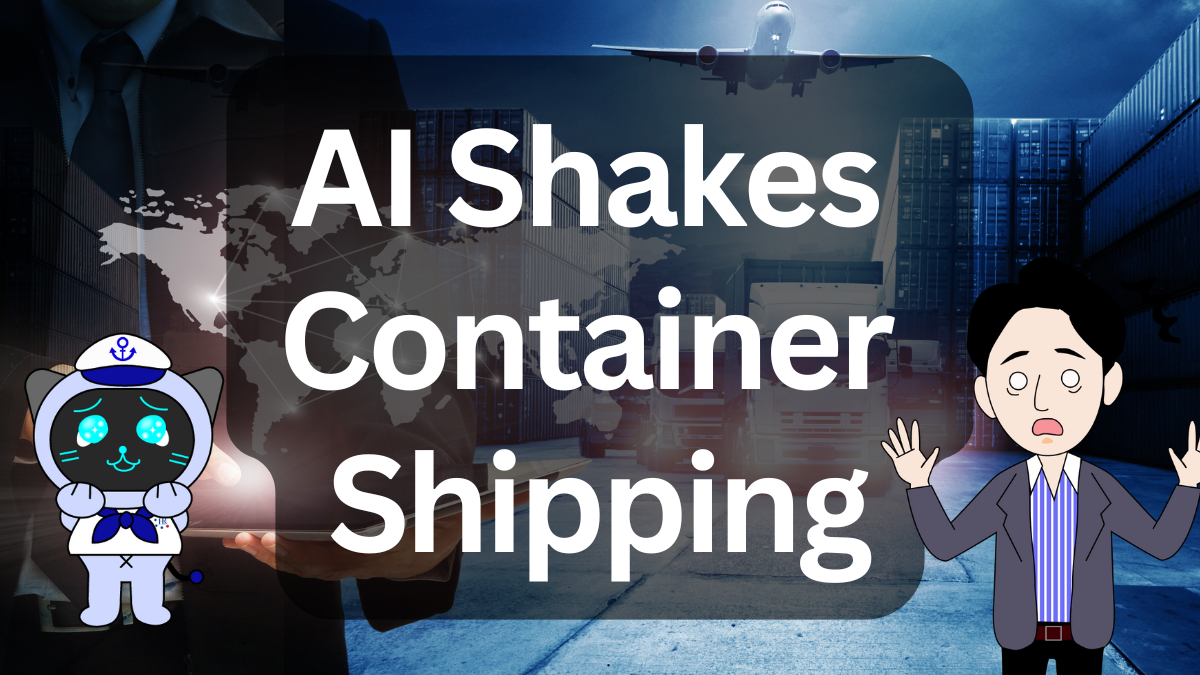
CONTENTS
AI’s Impact Reaches the Maritime Industry
Recently, AI has become a hot topic everywhere.
Amazon’s CEO stated that “the workforce will shrink in the future,” and Ford’s CEO even claimed that “half of all white-collar jobs will be replaced by AI.”
Stock prices of advertising and research firms have also plummeted due to AI’s impact.
It’s unthinkable that the shipping and logistics industry would be immune to this wave.
I believe it’s one of the sectors that will be dramatically transformed by AI adoption.
Shipping Companies Now Prioritize Profit
In the past, shipping companies prioritized “delivering cargo reliably to customers.”
They didn’t hesitate to spend on fuel and strictly adhered to schedules.
However, after the 2008 financial crisis, this mindset changed drastically.
Slow steaming to save fuel became standard, and during the COVID-19 pandemic, service cancellations became routine.
As a result, port congestion and container shortages actually became a “profit-generating system.”
The fact that the industry generated over $400 billion in profits from 2020 to 2023 is clear evidence of this.
AI to Maximize Profitability
So how will AI be used?
By feeding it data on vessel operations, container loads, customer contracts, spot rates, port congestion, and fuel consumption, and then instructing it to “optimize operations for maximum profit.”
AI will then determine “which ships to deploy where,” “which customers to prioritize,” and “what rates to offer to whom.”
Google announced an API last year that uses AI to optimize shipping networks.
It claims to double profits, increase container handling by 13%, and reduce the fleet size by 15%.
CMA-CGM has also invested €100 million with Mistral AI to drive a full-scale AI transformation of their operations.
From Relationship-Driven to Profit-Driven
The shipping industry has long emphasized strong customer relationships.
Letting AI make decisions is a radical departure from traditional culture.
But since the pandemic, carriers have begun to embrace the idea that they are, first and foremost, profit-driven businesses.
AI is expected to accelerate this shift dramatically.
Conclusion
The future of container shipping may be one where AI takes the reins of operations.
For shippers, this could mean the risk of being “deprioritized based on conditions,” rather than just enjoying convenience.
But at the same time, this is a major opportunity for the entire industry—driving efficiency, cost reduction, and decarbonization.
We in the logistics field must not treat this shift as someone else’s problem, but seriously consider how we engage with it.


